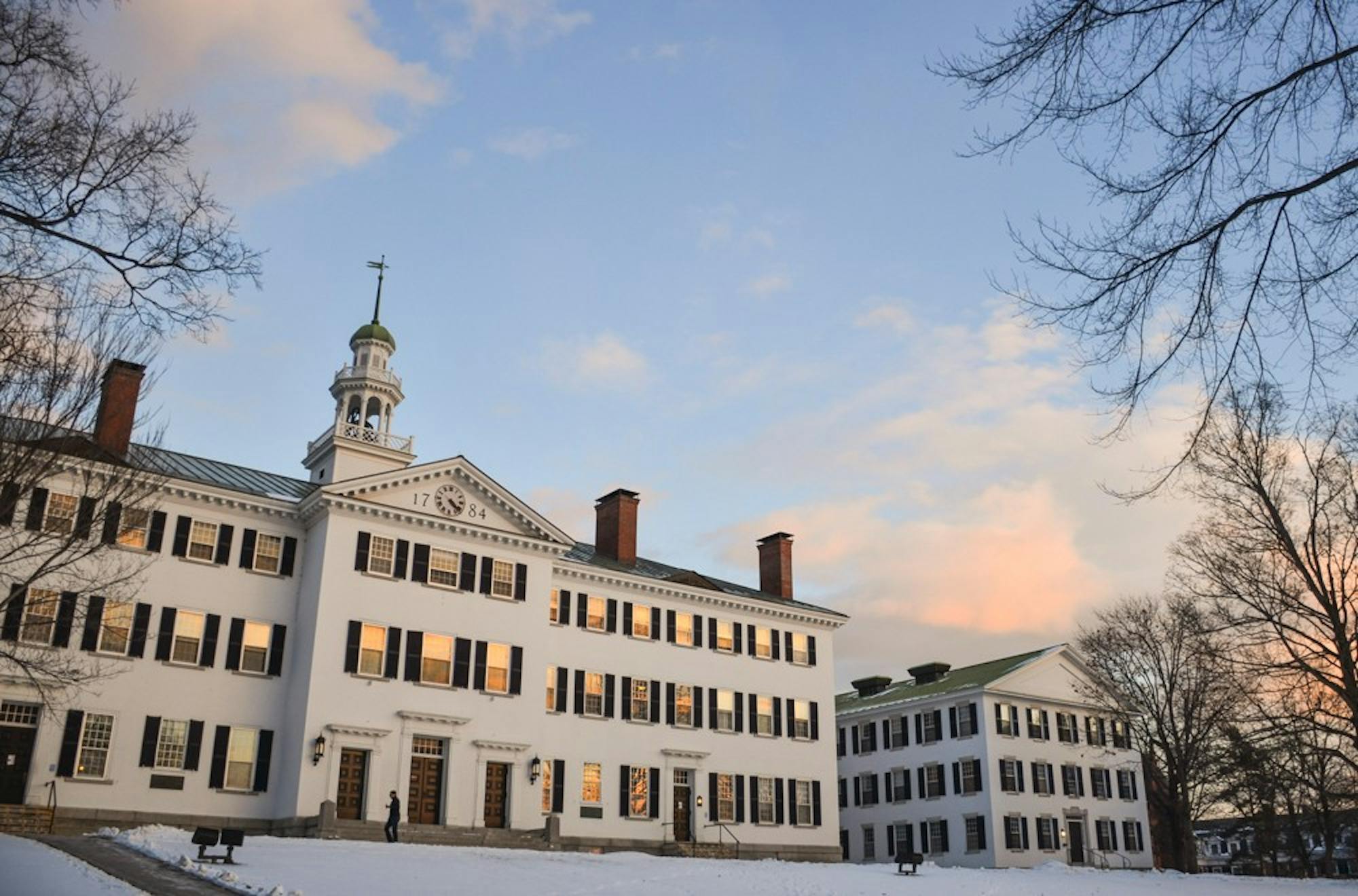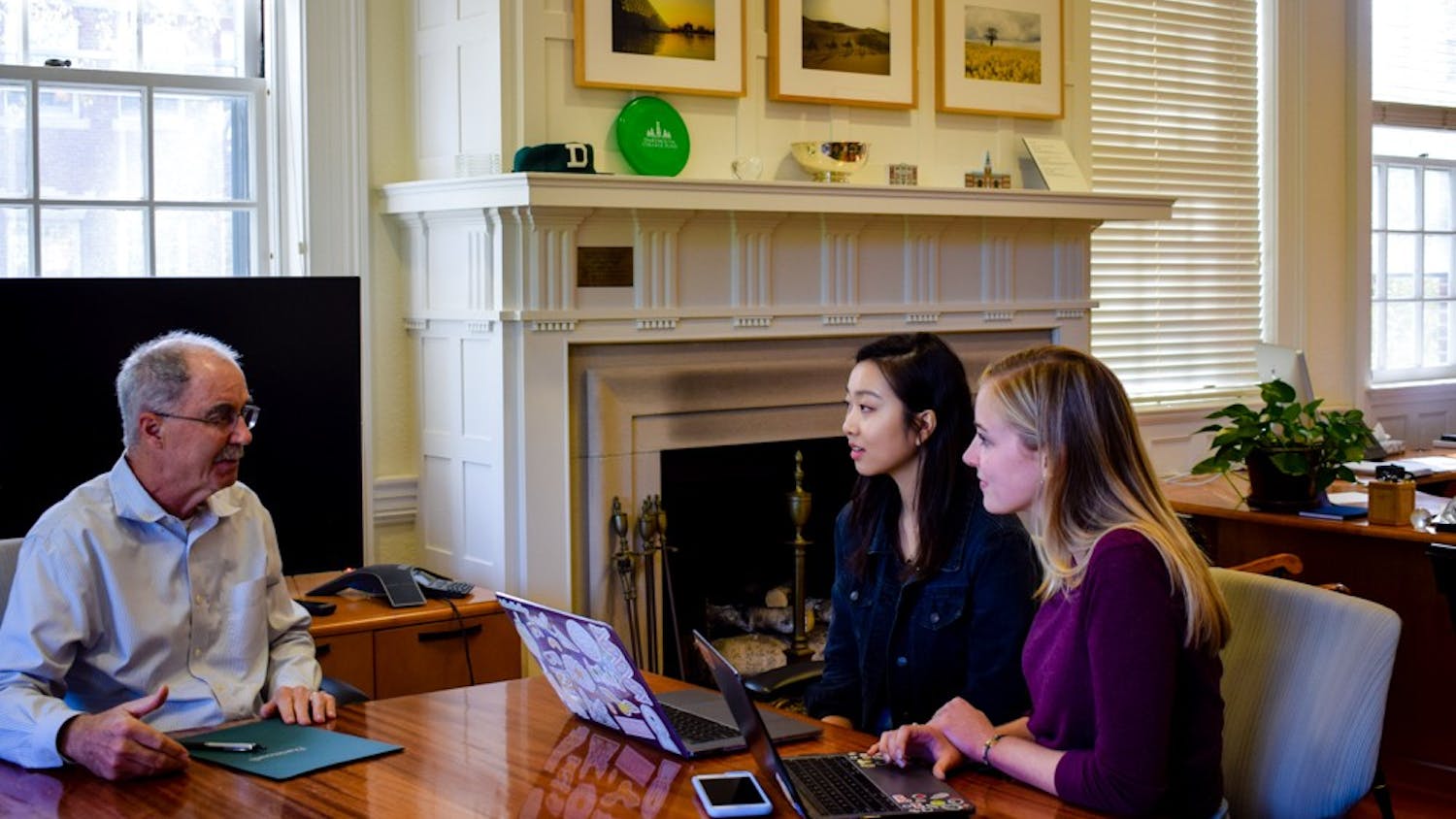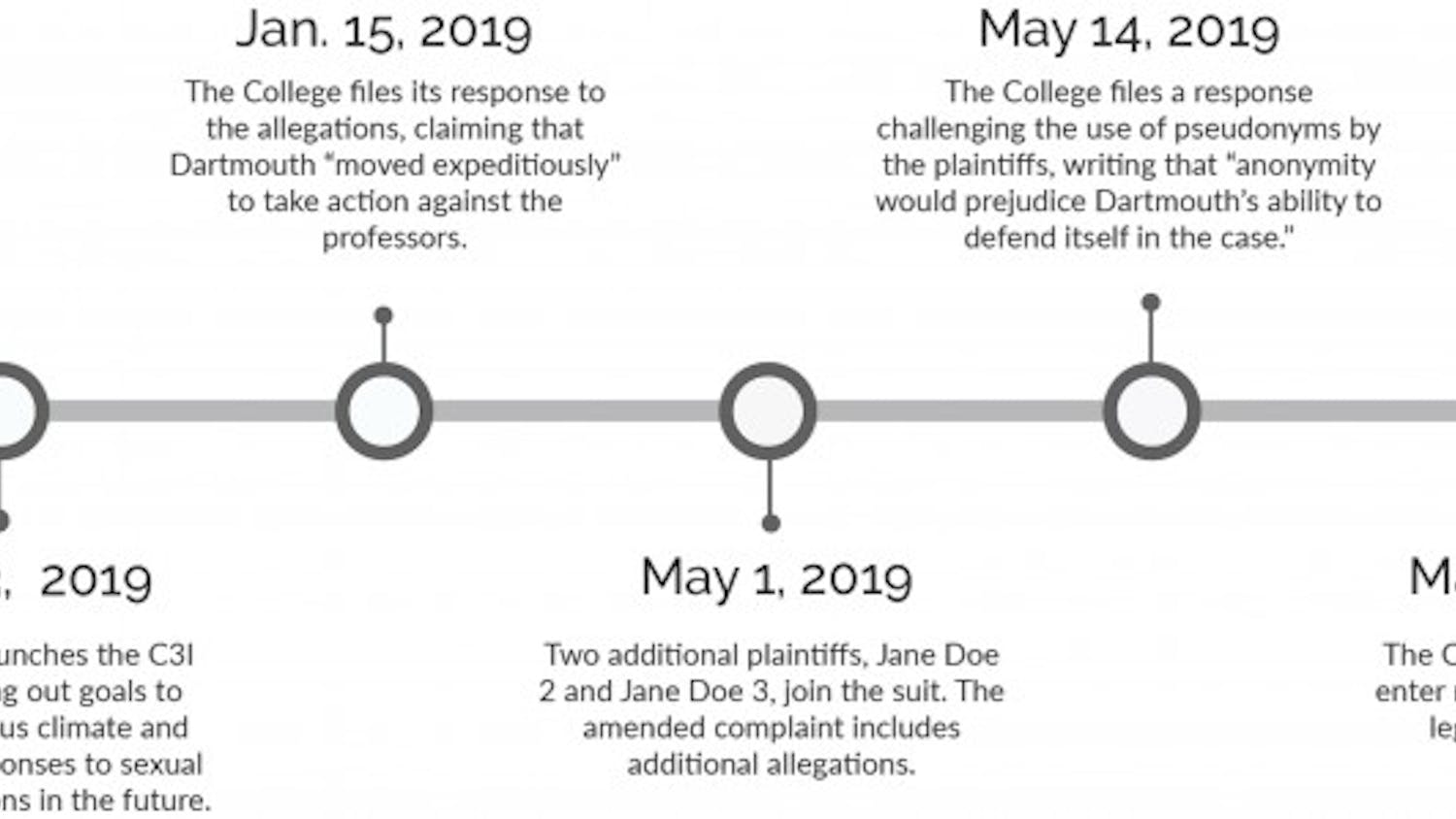At the Committee of Chairs meeting this Monday, Dartmouth’s Jewish studies program and religion department both released statements protesting the executive order issued by President Donald Trump restricting immigration into the United States. The statements call for the U.S. government to overturn the order, which bans entry of citizens from seven countries — Iraq, Syria, Iran, Sudan, Libya, Somalia and Yemen — for the next 90 days. The statements also denounce the burdens the order imposes on the functioning of the College in terms of student welfare as well as faculty agency and the ability to conduct scholarship.
According to chair of the religion department Randall Balmer, the statement was released due to the order’s global ramifications as well as its effect on students, many of whom are directly affected by the order. He also noted that a current faculty member of the religion department is personally affected.
Chair of the Jewish studies program Susannah Heschel said that the problem of refugees and denying entry to the U.S. are issues that are central to the Jewish studies discipline and comes up “over and over again,” which is why there is an academic element to the statement. She also said that the executive order affects disciplines at Dartmouth that depend heavily on foreign students, graduate students, post-docs and faculty. Given the implications the order has regarding future employment of international faculty as well as the ability to do research in the field, the order prevents students from obtaining the best education possible.
“Every student in the United States should be protesting and saying ‘You’re interfering with my education,’” she said.
Heschel, who presented both departments’ statements at the meeting, said the overall reaction was positive and anticipates other departments will present similar statements in the future. She said she believes it is reassuring to both students and colleagues that they are “at the very least sympathetic and speaking up about this.”
Heschel also said that department heads had discussed potentially drafting a faculty-wide statement that is not discipline-specific, as opposed to the two that have been released.
In a campus-wide email, College President Phil Hanlon and Provost Carolyn Dever addressed the executive order and its effect on campus, noting that Dartmouth has over 900 international students and more than 200 international faculty, scholars and staff. In the email, they endorsed the Office of Visa and Immigration Services’ recommendation for foreign nationals from the seven indicated countries to avoid all international travel, including to Canada, for the time being.
Though expectations for the College were not written in either of the department’s statements, Heschel said she hopes that Hanlon and the administration will make a strong statement against the order. She said that Dartmouth must come together with other universities collectively as administrators, as faculty and as students.
Heschel also said she recommends that the College invites New Hampshire legislators to a general faculty meeting to ensure Dartmouth’s needs as a critical element of the state of New Hampshire are clear and apparent.
“Our representatives in Congress, in Washington, have to act on our behalf … That means not hindering faculty from coming to teach here, students from coming to study here. That’s their obligation. That’s their job,” she said.
Balmer also encourages Hanlon to make a strong statement, though he indicated his sympathy for the “quandary” Hanlon is faced with.
“If he takes a position that some people regard as partisan, then he risks alienating important constituencies at Dartmouth,” he said.
Some of the faculty, such as Balmer, believe that there are more questionable events to come in the future.
“There was a sense that, ‘This is not going to be the last time that actions from the White House will merit a response or a protestation,’” he said.
Because of this, Balmer mentioned that at the meeting, there was a preliminary, but not decisive, conversation about developing a mechanism that would allow Dartmouth faculty and staff to respond in a timely manner to “some of the outrages coming out of Washington.”
Saleha Irfan ’19, an international student from Pakistan, said that she appreciated the administration’s actions in response to the order, noting support from deans and professors for international students was helpful, especially in a time where the rest of the community seemed to “pretty much go on with their lives.”
For Irfan and other international students, the order has already affected plans for spring break and future aspirations to study abroad through Dartmouth’s foreign studies programs and other organizations that sponsor international travel. Irfan recently cancelled a trip to Cuba for this upcoming spring break after being advised not to travel outside the U.S. as a measure to guard against the possibility that Pakistan will be added to the list of sanctioned countries.
Irfan said she has had to consider a plan of action that involves either staying in the U.S. for the rest of her academic career at Dartmouth or going home to her family. She also said she can imagine the difficulty for first-year students in particular, who would have to make a decision that could last for four years.
As an international student, Irfan was most saddened with the lack of student response to the actions, which she described generally as lukewarm.
“There was no meeting called, there was no message from student assembly, there was practically nothing from the International Students Association, and I think that’s pretty ridiculous considering, you know, Dartmouth’s supposed to be this diverse, inclusive community,” she said.
She hopes to see more student involvement as well as continued support from the administration. Balmer also would like to see more movement from the community, citing the Women’s March as an example of how individuals can mobilize together. Heschel suggests that students use civic engagement and exercise voting powers to make a statement against the order and against any other possible actions from the incoming administration.
“I think we can say very clearly, for example, ‘I will never vote for the Republican party if this is party policy. You’re [going to] lose a generation because ... you’ve interfered with the education of my fellow students, my friends, because at Dartmouth everybody is here together ... as a community,’” she said.




